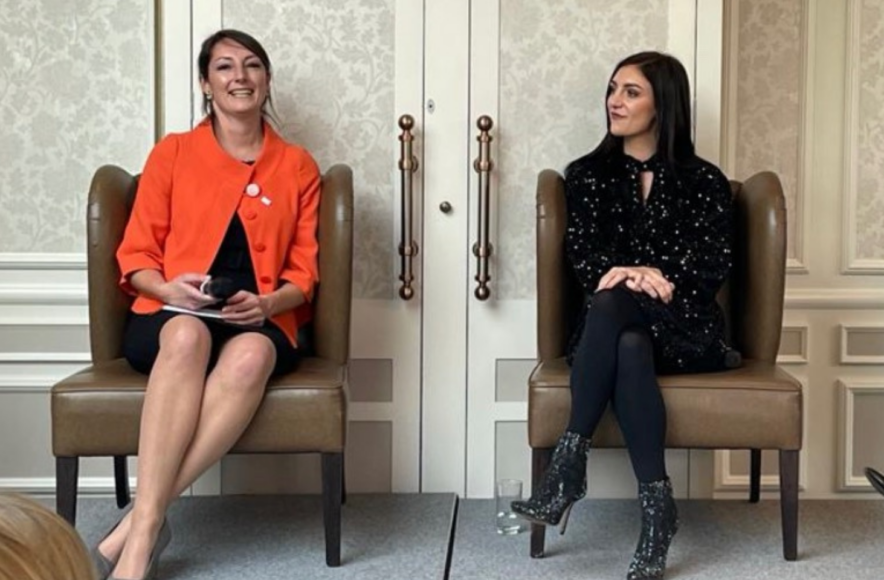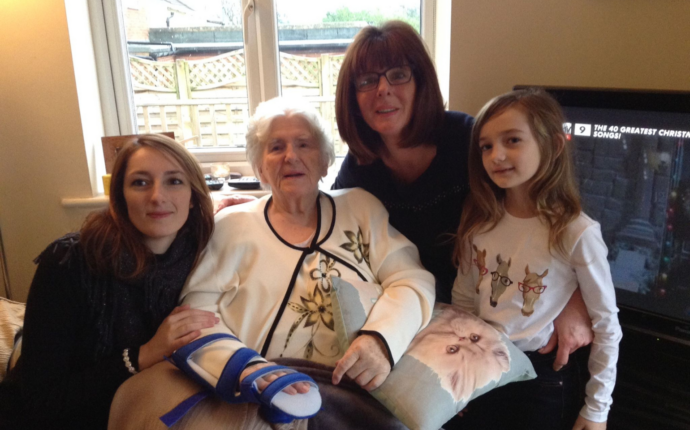‘We’re on the same team’: how United Response is supporting women at work

Earlier this month, Teesside law firm The Endeavour Partnership hosted their seventh annual International Women’s Day event at Rockcliffe Hall. Celebrating local women in business, the speaker panel featured United Response’s Head of HR, Jenny Tremewan.
The theme for this year’s event was ‘Embrace Equity’ – recognising that everyone has different circumstances and will need different types of support in order to achieve the same things.
A great place to work
Jenny told the panel how proud she was to work for United Response, particularly because we support people into employment, education and training:
We are enablers. With our support services, we’ve got a brilliant platform to be able to remove barriers and allow people to achieve any objectives they want. Not just for women in the workplace, but for people with disabilities and autism too.
She also acknowledged how rare it is that United Response’s gender pay gap data is equal – meaning men and women are paid equally across the organisation:
Our directors’ team, for example, has an equal number of women as it does men on the board and that’s brilliant.
What does equity mean?
Jenny, a qualified solicitor, comes from a long line of working women. She says one of her biggest inspirations is her grandmother, who worked full time as a headmistress:
Women doing it all has always been the norm for me.
But at work, I still felt like I had to be better, to be seen as equal. I had to overachieve just to be recognised as equal to my male counterparts.
Prior to working at United Response, Jenny ran a HR department for an independent builders’ merchant, which had 85% male staff and no women on the board.
She explained that the reason she stayed in that role for 10 years was because of a flexible work agreement, which allowed her to manage looking after her children whilst working full-time.
Flexible working is also something that we offer at United Response. Many of our Corporate Services roles involve some element of homeworking.
Jenny thinks that this is really important, not only for colleagues’ work-life balance, but also so we can hire highly-skilled staff from across the country:
I think that’s one good thing to come out of the pandemic – increased flexibility, particularly for women and people with children.
It’s opened the door to a wider labour market – I’m here and I wouldn’t have been, I couldn’t have been otherwise.

Working together
Jenny recalls how many of her female colleagues and managers inspired her to progress further in her career, and stressed the importance of supporting one another in the workplace:
We’re all in this together. We don’t have to be a one-man band. You can’t do it on your own.
Women should support each other and we shouldn’t ever have to be in battle with each other because we’re on the same team.
Inspiring the women of the future
Also speaking at the event were a panel of young girls, who had prepared a presentation with statistics on gender and pay.
They told the audience how important it is to make everyone aware of these issues, that ‘the message isn’t just preached to us, but to boys and girls alike’.
Supporting colleagues with the menopause
This year, United Response has introduced a new policy to support staff going through the menopause. Jenny highlighted how important this is, as many women consider retiring or resigning when they reach menopause:
If you’re having a particularly difficult time, you might not have the will to fight that battle. Whereas if we raise awareness of menopause in the workplace, we would be eliminating that battle.
Putting those additional support mechanisms in place, raising awareness and making adjustments where necessary, then actually, you could have that person working with you for years to come.
With that amount of experience, they’ve got a lot to give. They’ve got a wealth of knowledge.
- Jenna Lloyd is Senior Content Officer for United Response.